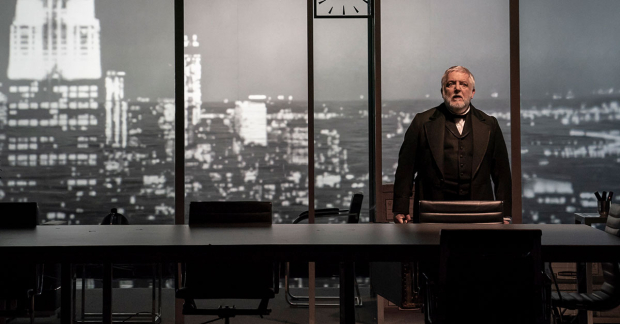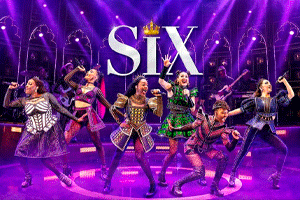The Tony Awards were a massive endorsement of UK theatre – and our government clearly doesn't care

© Nicholas Calcott
On Sunday night, the Brits came the closest imaginable to cleaning up at the Tony Awards – arguably the biggest theatre awards in the world.
Of the 26 categories, 13 were won by shows or creatives from the UK. New talents like Six writers Toby Marlow and Lucy Moss stood next to household names like Sam Mendes or Simon Russell Beale. Basically – this is the theatrical equivalent of winning a baker's dozen gold medals at the Olympics.
But if you were looking at the UK government's relevant Twitter feeds over the last 48 hours, you wouldn't even have known the Tony Awards were taking place, let alone be aware of the titanic success for our theatrical talent.
DCMS hasn't said a peep on its channels. The UK Secretary of State Nadine Dorries, overseeing the department, hasn't mentioned the wins once – but has filled her timeline with videos about London Tech Week. Guess that cyber training could have been a better route to exposure. Even the US Embassy to the UK congratulated our shows.
Given the government's bombast surrounding funding cuts to some theatres, the lack of appreciation for international success hits all the harder. For our National Theatre to win five top prizes and not a single word said is a bit baffling, though perhaps not all that shocking. Two thirds of the Southbank powerhouse trio – the Old Vic, Young Vic and the National – may feel the cruel edge of funding cuts soon (the Old Vic doesn't rely on subsidy). They have been raking in the awards on Broadway in recent years – Angels in America, The Inheritance, A Christmas Carol and now The Lehman Trilogy all clinching top prizes. The Young Vic and Elliott and Harper Death of a Salesman may do something similar next year.
It would be absurd to limit this to London as well. Tony winning Company director Marianne Elliott thanked everyone at the subsidised Royal Exchange in Manchester for making her who she is today. Six found its feet at the Edinburgh Fringe.
Cuts go deeper than venues having to salami slice their output. They also stop organisations taking risks – at a time when Tony winner Moss stressed how companies need to put their faith in unknown entities in order for new work to thrive. Six started off as a student production where its writing duo could create without fear of financial failure. Some of the biggest shows in recent years – War Horse being an obvious example – have involved subsidised venues feeling comfortable in simply experimenting.
It's something the National's artistic director Rufus Norris acknowledged in an interview with us in New York after The Lehman Trilogy scored the Best New Play Tony (very much the 100m sprint of the play categories) – "Right at the moment where our funding is being questioned, I think it's really important to remember what excellence we bring."
Ben Power, Lehman's writer, said that these Tony successes (which are, in effect, a litmus test for the prowess of British theatre on the world stage) are down to "the power of subsidised theatre…these are the venues that have suffered the most over the last three years and therefore need the most support".
Draining that power at a moment of triumph would be at best ill-judged, at worse negligently cruel.











